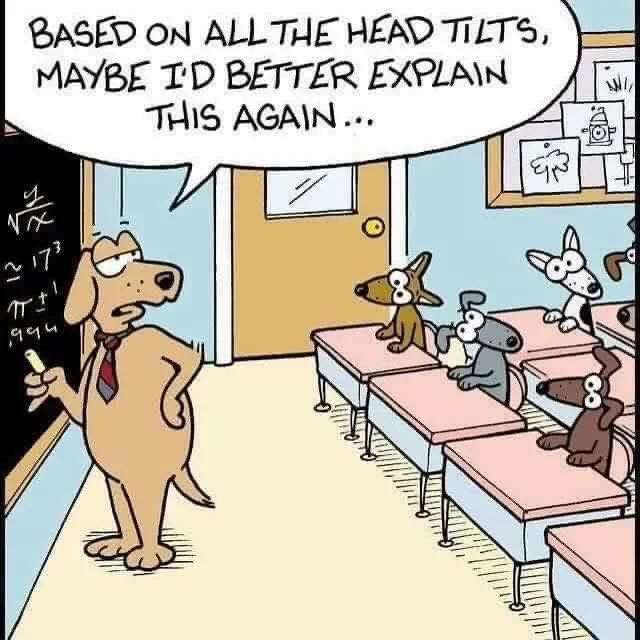The Teacher As Actor Part 6: Actors React
Acting is reacting.
Your class of students is your “scene partner.” What a teacher does in moments like the one above is what separates good teachers from great teachers. Do you notice when your students are confused and not “getting it?” How do you react?
Do you explain it again the same way like the cartoon above? Do you show it a different way?
Do you ask the students what part is confusing?
Do you accuse the students of not listening or not focusing?
Do you ignore the signs of confusion hoping they will get it eventually? Leaving them confused and possibly feeling bad about themselves as learners?
Do you tell a story of a time when you were not understanding something in class and how you dealt with it?
Do you tell the class that they seem confused by this and that makes sense since it is new. We don’t understand this YET.
I could go on and on about the decisions a teacher can make in this moment. It is important that we notice when our “scene partners” are not getting it and that we encourage questions. It is important that we respect and have empathy for our “scene partners” when they react differently than we had hoped. Our decisions in these moments shape how our scene partners think of themselves as learners. It is some of the most important work we do.
There are times when I know a lesson will be challenging and I will start off the lesson saying just that. We work on growth mindset in the moment and students are more willing to raise their hand when confused once that conversation has taken place. Like most teachers, when a student raises their hand to ask a question, you know there are probably a few others with a similar question who aren’t raising their hand. It is vital to work on a classroom culture of taking responsibility for our learning. Showing students on a regular basis what they did right even if they got something wrong (ex. My Favorite Mistake in math class) is important to teach students that they are on the right track and not as far off as they may think.
Assessing student understanding is not just end of unit assessments or tickets to leave. It is moment by moment empathetic awareness of your “scene partners” confidence and understanding of a skill/topic.
